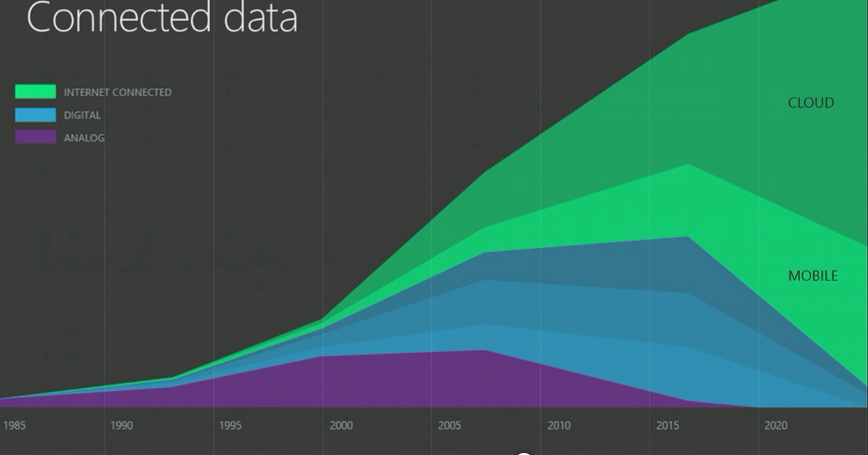The sexiest story in the cloud is connected cows, and other takeaways from Microsoft Build
Microsoft’s annual conference for developers, Microsoft Build, has traditionally been very much for Microsoft developers. However, the last few years have seen the conference — and the corporation — taking a much more open approach. Two of the Signiant executive team were in San Francisco for last week’s version and brought back some fresh excitement for the direction Microsoft is taking under the leadership of Satya Nadella.
Nadella has already pushed the formerly insular giant towards opening its systems to work across platforms, even open-sourcing some of its developer and platform technologies. But the announcements at Build reinforced that the company wants to fully shed its old arrogant ways and create a collaborative ecosystem that welcomes developers from iOS, Android and Linux.
“Satya Nadella made it clear from the start that ‘this is not our father’s Microsoft’ in his opening keynote, and Microsoft reiterated throughout the week that they are open to multiple platforms, applications and even clouds,” said Nelson Hsu, Signiant’s VP of Business Development and Alliances. “Specifically, the Microsoft Azure Service Fabric is built in such a way that partners and customers can really build API based, scalable offerings on Azure. The level of enablement and the architecture further reinforces that partners continue to be key to the Microsoft DNA.”
Azure Data Lake
Both Hsu and our CTO, Ian Hamilton, were impressed by the new Azure Data Lake offering. As an old database developer (back to SQL-89), Microsoft brings forth the next coming of data in the form of their Data Lakes. It truly is Big Data convergence with the support for hyper-scale data analytics whether unstructured, structured or semi-structured.
“At the heart of it, of course, is the ability to scale and support massive petabyte content, something we see as a growing force to be able to transfer very large files quickly – whether into or out of the cloud,” said Hsu. “Coupling this with the work that the Azure Storage team is delivering leaves me very excited to see the next coming of data services (remember SQL Access, ODBC and COM+) and Azure BLOB capabilities.”
Hamilton’s favorite takeaway, however, happened about an hour into day two’s keynote presentation, when Joseph Sirosh took the stage and spoke about connected cows, machine learning, March Madness and genomics. All of which were examples of apps developed on its open platform that well illustrated the potential genius of giving developers access to connected data. And, by 2020, Sirosh said, there will be upwards of 50 million petabytes of it — almost entirely in the cloud — representing the planet’s information and intelligence. Here’s a slide from Sirosh’s presentation demonstrating connected data growth since 1985 and projected to 2020.
One example he gave of the huge implications this connected data has for developers and the planet came through “the sexiest story in the cloud.” It goes something like this:
Connected Cows
As long as cows have been domesticated (which is forever since the wild ancestor of cows is extinct), dairy farmers have been trying to figure out two things: how to prevent illness in their animals and how to determine when cows are ready to mate. Like humans, estrus, or the window for ovulation and fertility is fairly narrow each month. Historically, farmers have relied on observing changes in cow behavior that indicates estrus, such as restlessness at night.
Enter the connected cow pedometer strapped to the ankle of each cow. It counts the steps of every cow and sends the data to Microsoft servers, which alert the farmer if any cows are exceeding normal stepping patterns at night. The rate of predicting estrus rose dramatically as did pregnancies via artificial insemination. What’s more, through analyzing the data, the farmers could also predict some kinds of diseases and take measures to prevent them. It was just one example of an application that any developer can now build on Microsoft’s open systems.
Nope, this is definitely not our father’s Microsoft.




